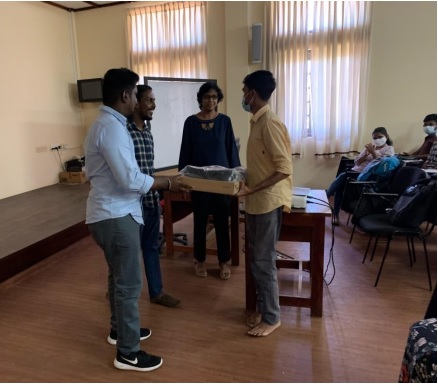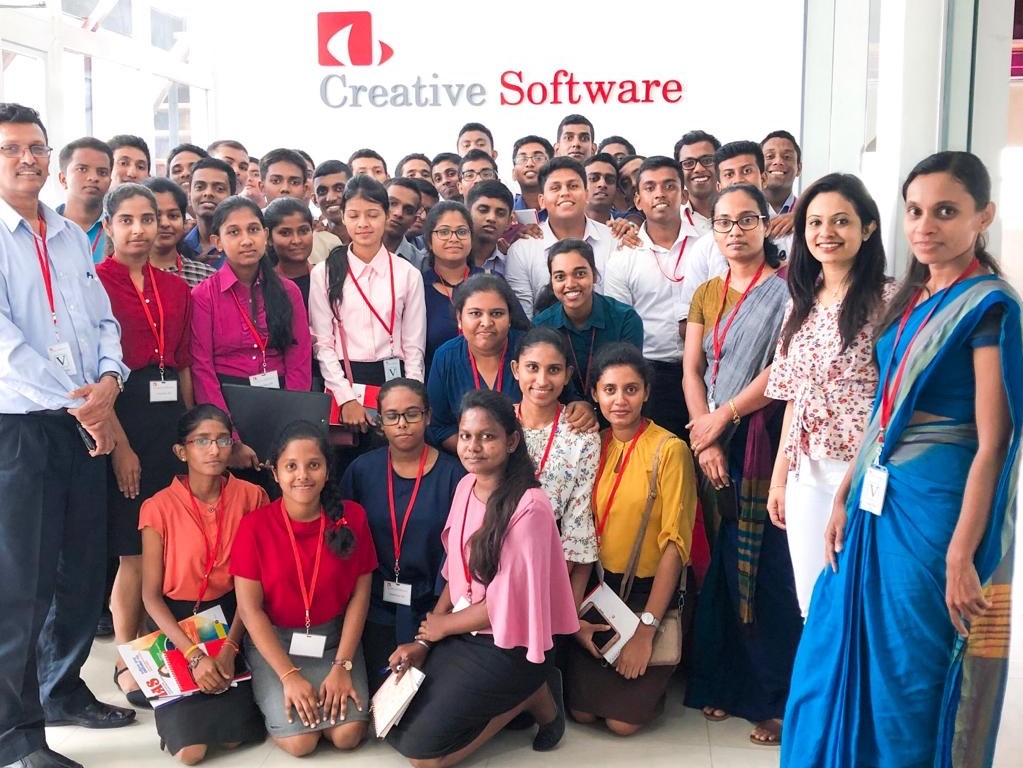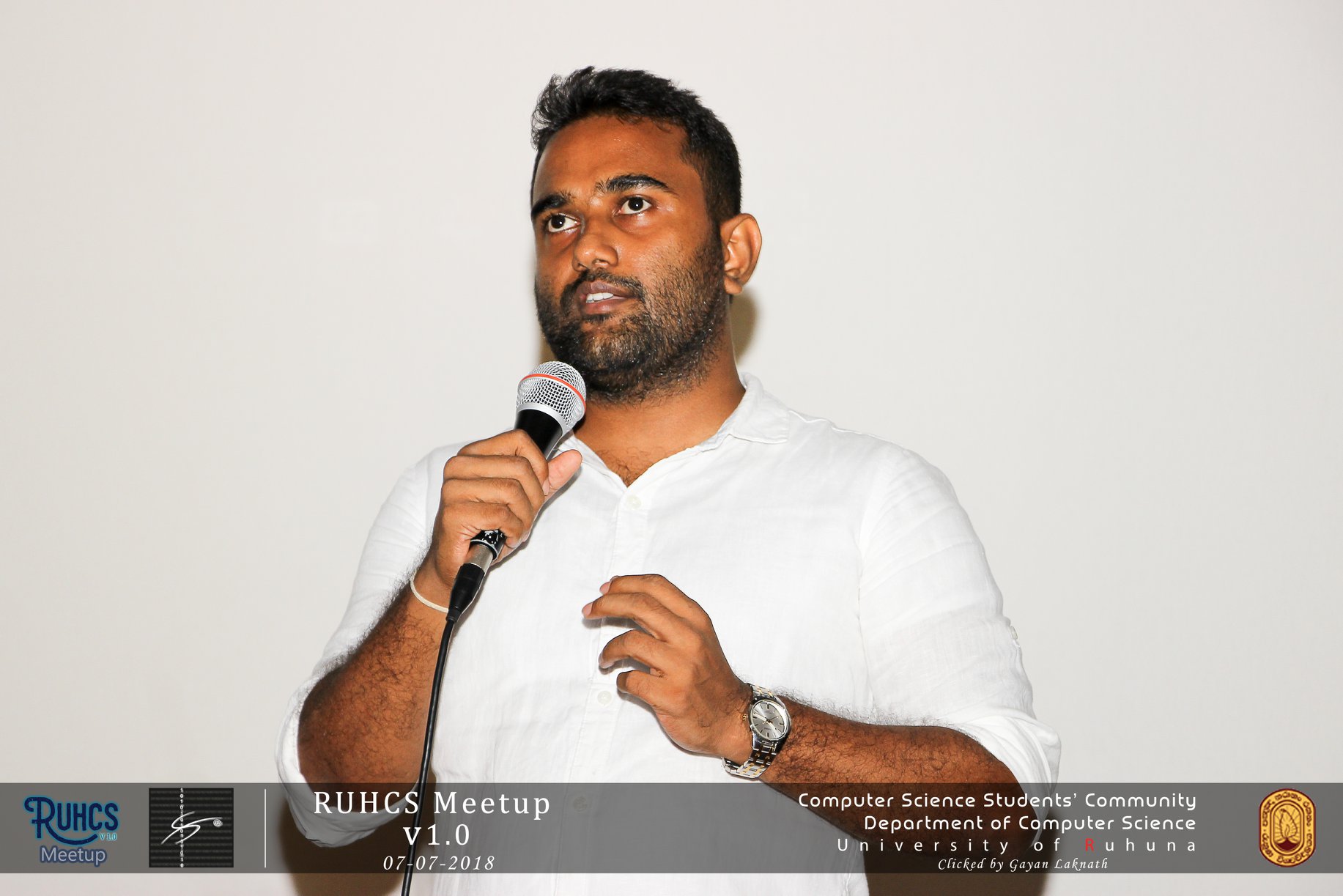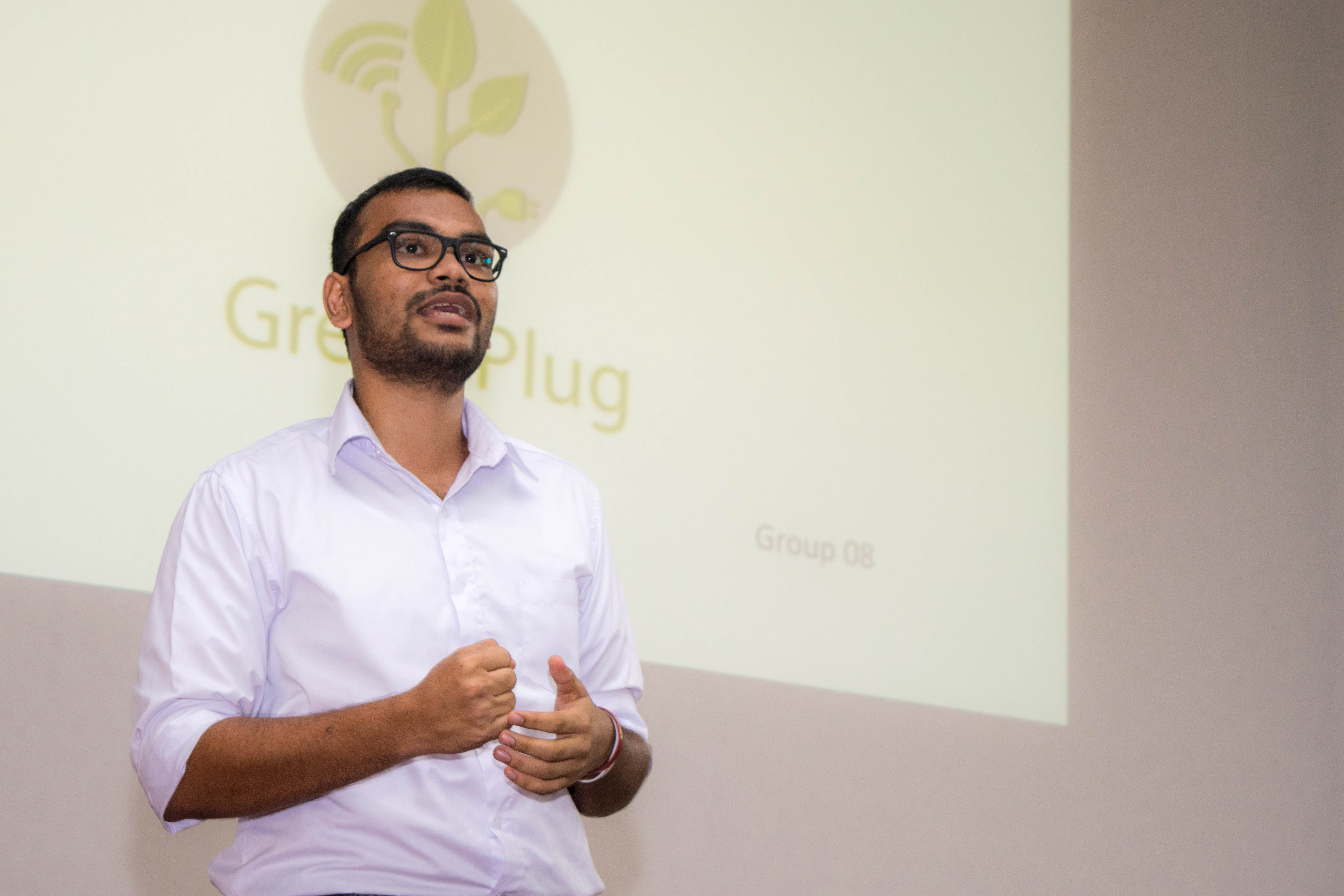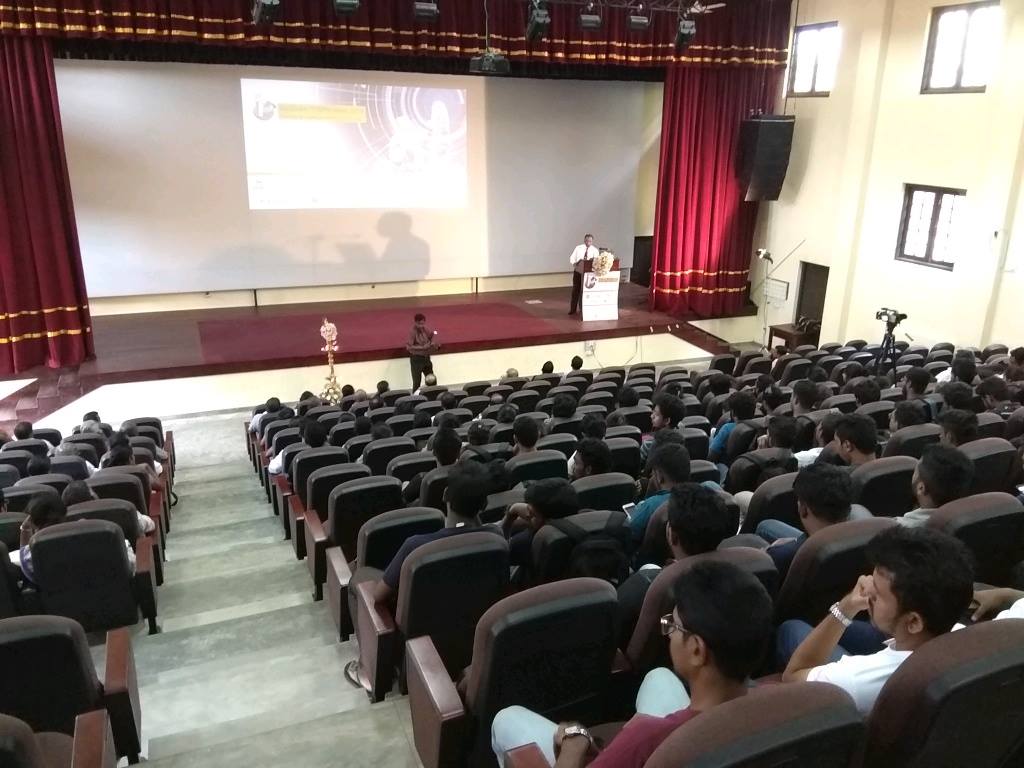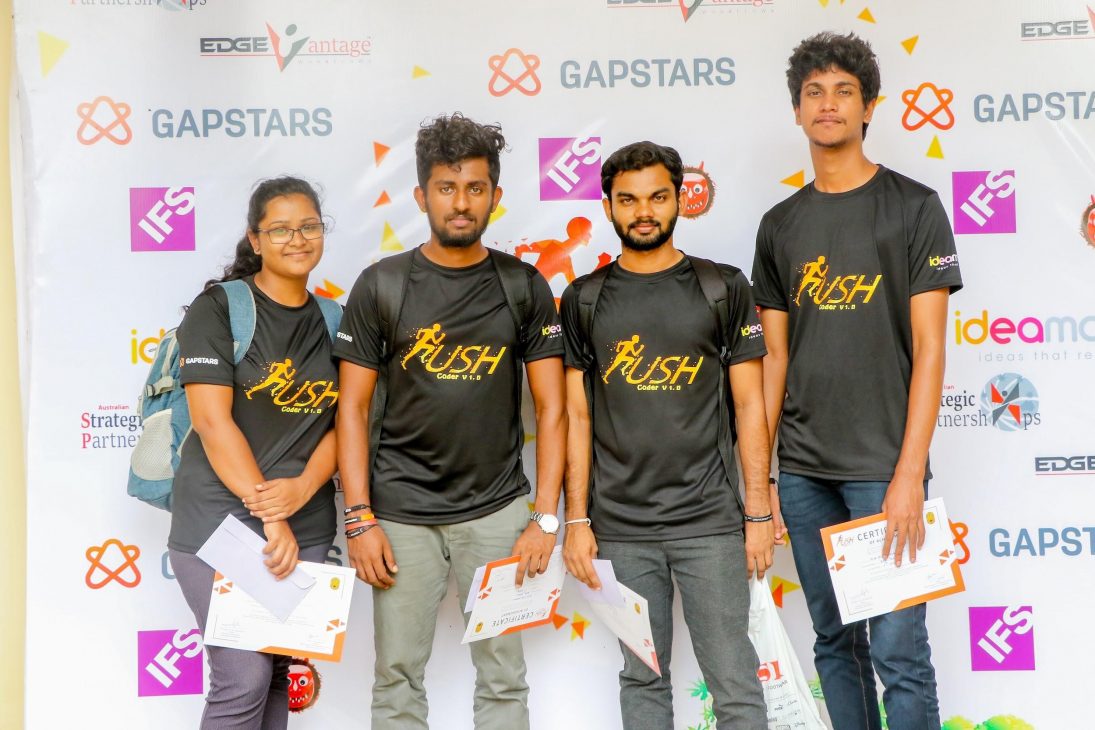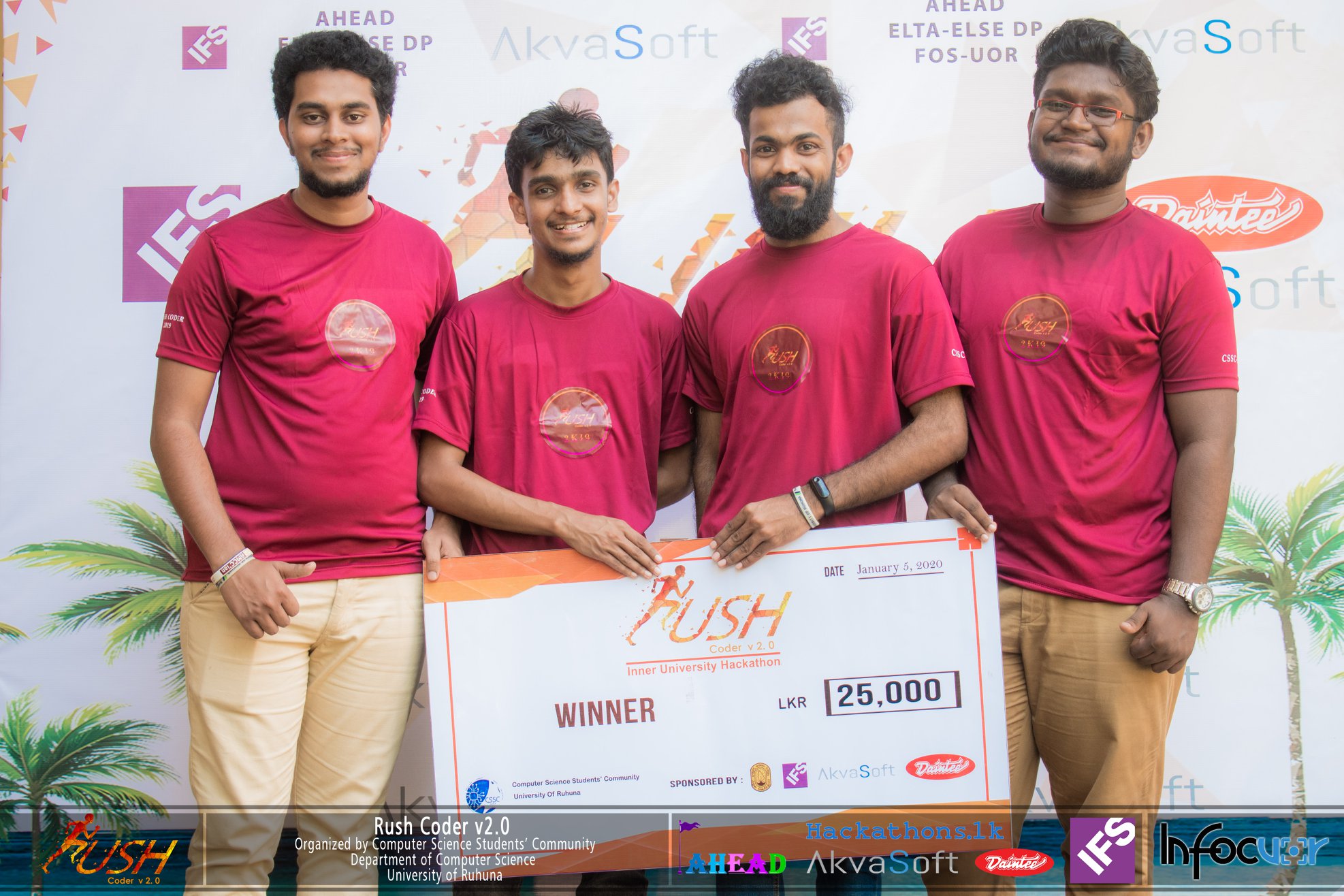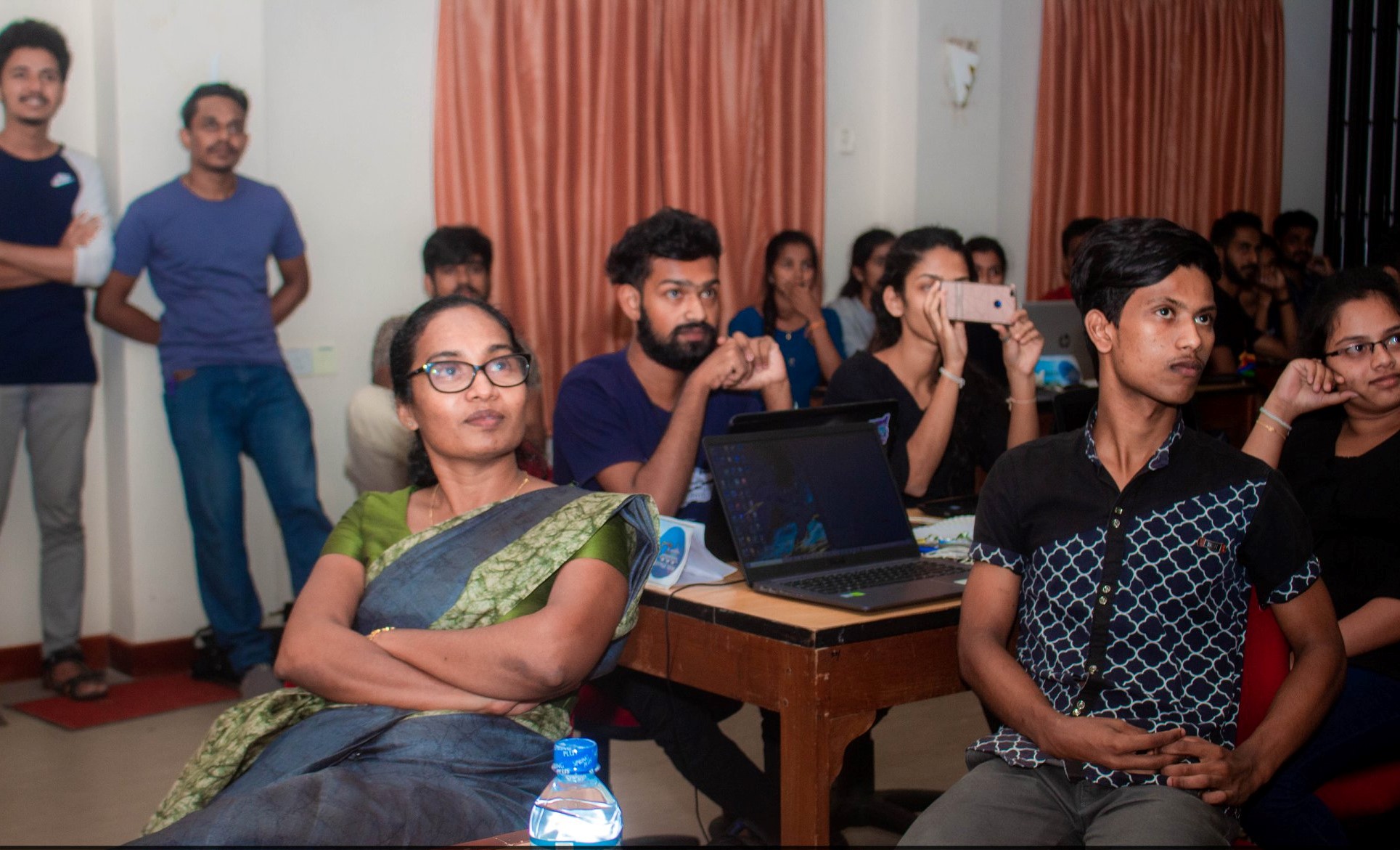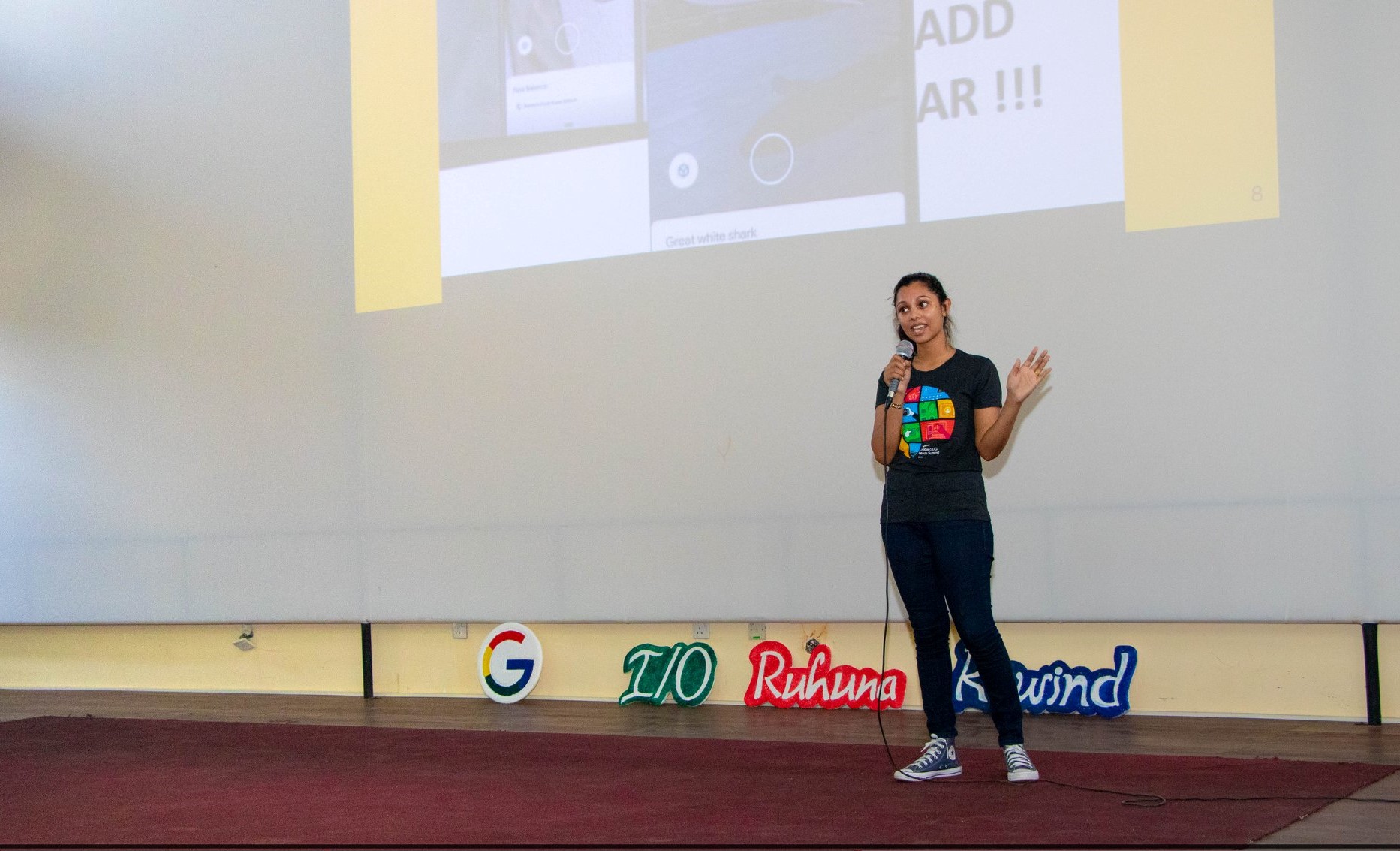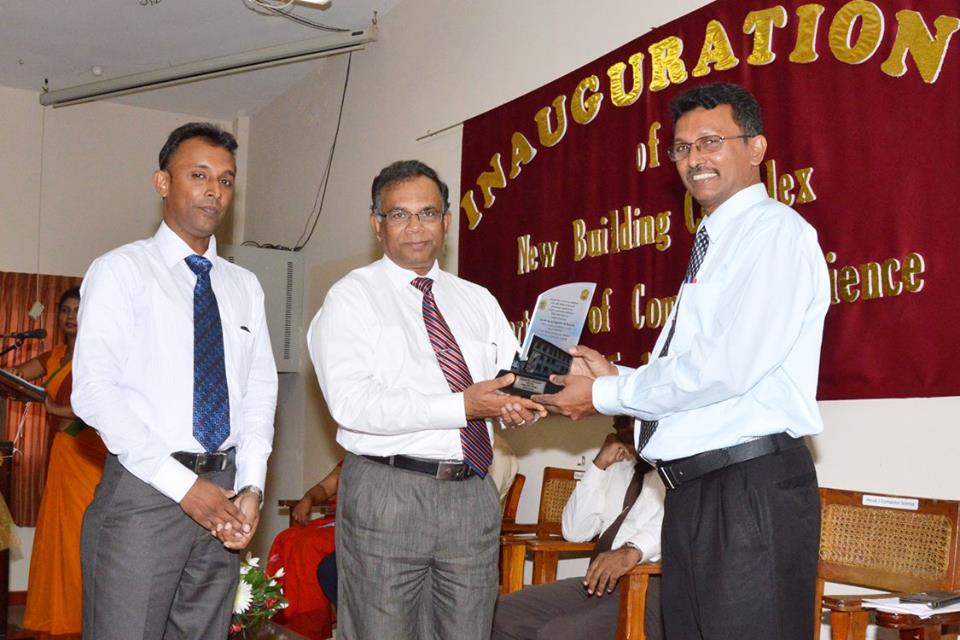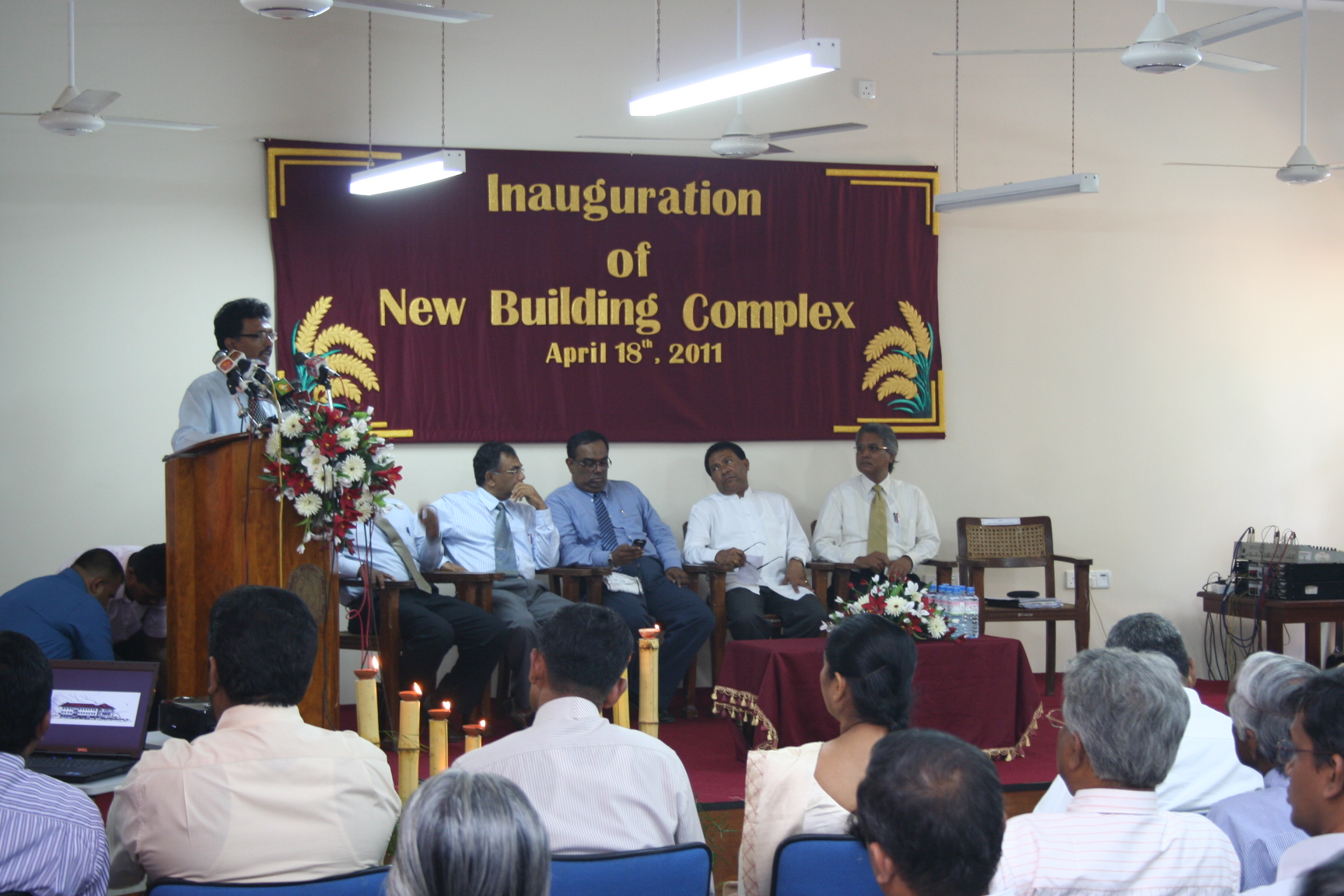This Program is opened only for Physical Science students of the faculty of science. The duration of the Bachelor of Science (General) Degree Course is of three academic years (six semesters). The department of Computer Science offers course units of 3- credits (1/3 of BSc General Degree) in Computer Science for 120 students per batch.
Bachelor of Science (BSc) General Degree Programme
COM1112 :Basic Concepts of Computer Science (30 lecture hrs) (Core)
Overview of computer systems (e.g.: evolution, classification and functions of computer systems), Basic components of the computer system (e.g.: processor, memory, secondary storage, I/O devices), Explain and apply arithmetic operations of binary number system including conversions among number systems, Apply Boolean algebra and Kmaps to miimize Boolean expressions, Design logic circuits for given requirements and recognize the universality of NAND and NOR gates, Identify memory types, their specialties, and isues with system performance, Explain functionalities of CPU components and describe elements, types of a CPU instruction and processing steps, Compare and contrast several addressing modes, Data communication and computer networks (eg: LAN, WAN, MAN, network topologies, network transmission media), The Internet, Communication over Iternet, Computer security and maintenance (e.g.: security threats, attacks, ethical use of computers)
COM1123 :Programming Techniques (30 lecture hrs & 30 practical hrs) (Core)
Introduction to programming methodology and problem-solving strategies, Algorithm dvelopment using pseudo code, Basic program structure and the Integrated Development Evironment (Essential program structure, Documentation and standard programming pratices, Integrated development environment(IDE) Editing, Compilation, Execution and Dbugging), Program Development using a higher-level programming language such as C, Bsic input and output, Variables and Expressions, Library functions, Standard programming
practices for variables and assignments, Decision structures, Loop Structures, Input and ouput using files, Simple data structures, Functions, IntrThe mode of Assessment/Evaluation
of these Computer Science Course Units in BSc (General) Degree would be physical and/or
online mode.oduction to the Object-Oriented Approach, Practical assignments aligned with
different lessons of the courses.
Evaluation Method: Practical Examination 30% and End Semester Examintion 70% (Student must obtain at least 35% from the theory paper and 30%
from the practical paper)
COM1213 :Internet Programming and Web Technologies (30 lecture hrs & 45 practical hrs) (Core)
The basic principles of client/server computing, Distinguished characteristics of client/server
systems and application areas, Comparison of two-tier versus three-tier client/server slutions, Web programming model, Interactive web, Benefits and limitations of client-side
web programming, Byte code versus scripting, Basic concepts and development based on
Java applet / JavaScript / dynamic HTML (DHTML), Approaches to server-side programing. Benefits and limitations of server-side web programming, Development framework
for server-side programming based on PHP / Servlet / JSP, Web application development,
Development of a web application using synchronous and asynchronous techniques, Web
Development using PHP, MySQL, Sessions and Cookies, Practical assignments aligned with
different lessons of the course.
Evaluation Method: Practical Examination 30% and End Semester Examintion 70% (Student must obtain at least 35% from the theory paper and 30%
from the practical paper)
COM1223 :File Organization & Database Management System (30 lecture hrs & 30 practical hrs) (Core)
File Organization: Introduction to file organization, Storage devices, Disk parameters,
Record structure and design, Indexes, Hashing, Database Management Systems: Itroduction & Definitions, DBMS Architecture, Data models, DBMS languages, ER model
concepts, Relational model concepts, ER-to-relational mapping, Functional dependencies
and normalization process, Relational algebra, Relational calculus, Database security and
authorization, Practical using MySQL, Practical assignments aligned with different lessons
of courses.
Evaluation Method: Practical Examination 30% and End Semester Examintion 70% (Student must obtain at least 35% from the theory paper and 30%
from the practical paper)
COM2113 :Object Oriented System Development (30 lecture hrs & 30 practical hrs) (Core)
Fundamental concepts in object orientation: introduction, class and object, generalization
and practical uses of generalization, object interaction with message passing, polymorphism,
origins of object orientation, object-oriented languages, Modelling: introduction to models
and diagrams, difference between models and diagrams, introduction to UML, models in
UML, Software development process: what is a development process, iterative and incremetal software development, important artifacts developed in object oriented software develoment process, Process modeling with UML activity diagrams, Requirements and Use cases:
Business and system use cases, documenting requirements by using use cases, brief and fully
dressed formats in use case modeling, use case diagrams and notations, operation contracts,
describing use cases using UML activity diagrams, Modelling structure: class diagrams,
attributes and state of a class, links and associations, multiplicity, operations, identifying
classes and developing class diagrams, Modelling behavior: interaction diagrams, communcation and sequence diagrams, Modeling object interaction using communication/sequence
diagrams, Use case realization: realizing use cases by using communication/sequence digrams and class diagrams, Practical assignments aligned with different lessons of the course.
Evaluation Method: Practical Examination 30% and End Semester Examintion 70% (Student must obtain at least 35% from the theory paper and the 30%
from the practical paper)
COM2122 :Software Engineering (30 lecture hrs) (Optional)
Introduction to Software Engineering, Activities and Characteristics of Software Processes,
Software Process Models, Requirement Analysis and Specification, System Modelling.
Evaluation Method: Continuous Assessment and/or End Semester Examination
COM2122 is compulsory for the students who wish to follow BSC Hons (Comp Sc) Degree
Programme.
COM2213 :Data Communications and Computer Networks (30 lecture hrs & 30 practical hrs) (Core)
Introduction to Computer Networks (Application of Computer Networks, Network Harware, Network Software, OSI Model, Internet Model), Physical Layer (Transmission Media,
Wireless Transmission, Communication Satellites, High-speed Digital Access- DSL, Cable
Modem, Multiplexing- FDM, WDM, TDM), Data Link Layer (Data Link Layer Design IssuFraming, Error and Flow Control, Error Detection and Correction, Elementary Data Link
Protocols, Sliding Window Protocols), Medium Access Control (MAC) Sub layer (Multiple
Access Protocols, LANs topologies and protocols, Ethernet, Wireless LANs, Data Link
Layer Switching Hubs, bridges, switches, routers, and gateways), Network Layer (Nework Layer Design Issues, Routing Algorithms, Congestion Control Algorithm, Quality of
Service (QoS), Internetworking, Network Layer in the Internet, Development in Internet
Protocols), Transport Layer (Internet Transport Protocols TCP and UDP, Performance
Issues), TEST-II one class period, Application Layer (Fundamentals of the Session and
Presentation Layers, Domain Name System (DNS), E-mail, File Transfer Protocol, WWW
and Multimedia, Practical assignments aligned with different lessons of the course
Evaluation Method: Practical Examination 30% and End Semester Examintion 70% (Student must obtain at least 35% from the theory paper and the 30%
from the practical paper)
COM2223 :Data Structures and Algorithms (30 lecture hrs & 30 practical hrs) (Core)
Pre-requisite: COM1123
Simple numerical algorithms, Sequential and binary search algorithms, Worst case quadratic
sorting algorithms (selection, insertion), Worst or average case sorting algorithms (quicksort,
heap sort, merge sort), Stacks and Queues, Linked Lists, Trees, Binary trees, Binary search
trees, Common operations on binary search trees such as insert, delete, iterate over tree,
Graphs and graph algorithms, Representations of graphs (e.g., adjacency list, adjacency
matrix), Depth and breadth-first traversal, Hash tables, including strategies for avoiding
and resolving collisions, Practical assignments aligned with different lessons of the course
Evaluation Method: Practical Examination 30% and End Semester Examination
70% (Student must obtain at least 35% from the theory paper and the 30% from
the practical paper)
COM3113 :Operating Systems (30 lecture hrs & 30 practical hrs) (Core)
Introduction and overview, Processes and threads, CPU Scheduling, Deadlocks, Memory
management, File System implementation, Practical assignments aligned with different
lessons of the course.
Evaluation Method: Practical Examination and End Semester Examination 70%
(Student must obtain at least 35% from the theory paper and the 30% from the
practical paper)
COM3122 :Data Mining (30 lecture hrs) (Optional)
Basic concepts of data mining, Data pre-processing techniques, Classification, Prediction,
Clustering, Association rules, Concept of data warehousing with special emphasis on archtecture and design
Evaluation Method: Continuous Assessment and/or End Semester Examination
COM3142 :Internet Services and Protocols (15 lecture hrs & 30 practical hrs) (Optional)
Introduction, Network and System Administration, Internet Protocols, Application Services
and how they are configured, maintained and repaired, Practical Session: this course should
give students a practical understanding of the services which are found in Internet Protocols
such as DNS server, Web server, Proxy server, Email server, etc., Practical assignments
aligned with different lessons of the course.
Evaluation Method: Continuous Assessment and/or End Semester Examination
COM3152 :Professional Practices and Issues in IT (30 lecture hrs) (Optional)
Social context of computing, Growth and control of the Internet, Accessibility issues icluding legal requirements, Context-aware computing, Ethical argumentation theories and decision-making, Moral assumptions and values, The nature of professionalism including care, attention and discipline, fiduciary responsibility, and mentoring, Professional certifcation, codes of ethics, conduct, and practice, Accountability, responsibility and liability, Intellectual property, privacy and civil liberties, Digital rights management, Copyrights, patents, trade secrets, trademarks and Plagiarism, Foundations of the open source movment, Philosophical foundations of privacy rights, Legal foundations of privacy protection and technology-based solutions for privacy protection, Professional written and verbal comunication with stakeholders. Evaluation Method: Continuous Assessment and/or End Semester Examination
COM3162 :Human Computer Interaction (30 lecture hrs) (Optional)
Background and motivation for HCI, Human factors, Theoretical foundations: theories,
models, principles, standards, guidelines, Interface design elements, Interface design: metods and principles, Interface design: data gathering and task analysis, Evaluating interfaces:
heuristic evaluation, GOMS, Interaction styles, Evaluation Data & Empirical Data, Lo-fi
Prototyping, Colour, Vision & Perception, Controls, widgets, icons & symbols, Usability
and Accessibility, Interaction devices, Future of HCI
Evaluation Method: Continuous Assessment and/or End Semester Examination
COM3b33 :Computer Group Project (60 practical hrs) (Core)
Project proposal preparation, Requirements gathering, System design and database design, Implementation, Testing and evaluation, Deployment/Present to the client, Final report preparation, Presentation and demonstration to the internal panel Evaluation Method: Attendance (0-10%), Final Presentation (20-25%), Final Product (30-40%), Final Report (30-40%), Individual Contribution (5-15%)
COM3213 :Multimedia Technologies (30 lecture hrs & 30 practical hrs) (Optional)
Introduction to multimedia technologies, Audio and video basics, Multimedia compression
techniques and standards, Multimedia Authoring Tools, Multimedia advanced coding and
media object production, Multimedia Integration and presentation, Practical assignments
aligned with different lessons of the course
Evaluation Method: Practical Examination 30% and End Semester Examintion 70% (Student must obtain at least 35% from the theory paper and the 30%
from the practical paper)
COM3222 :Emerging Software Technologies (30 lecture hrs) (Optional)
Technology Hype Cycle (Gartner), Case study on a selected software technology with respect
to hype cycle, Big Data, Cloud Computing, Edge Computing, Virtual Reality, Augmented
Reality, Blockchain, IoT, Smart devices, Artificial Intelligence, Natural Language Procesing, NoSQL databases, Comparing and contrasting parallel technologies such as cloud tecnologies with respect to their usability, pricing and proven track record of the corresponding
proprietor, Career path guidance for different technological areas in the software industry.
Evaluation Method: Continuous Assessment and/or End Semester Examination
COM3232 :Visual Programming (30 lecture hrs) (Optional)
Introduction to .NET, Conditional Logic, Loops, Adding menus to forms, Debugging the
code, Arrays, Events
Evaluation Method: Continuous Assessment and/or End Semester Examination
COM3252 :E-Commerce (30 lecture hrs) (Optional)
Introduction to E-Commerce, E-Commerce Business Models and Concepts, E-Commerce payment types, Basic Functions of an E Commerce site, E-Commerce site Designing factors, Development life cycle, Client-server architecture, Web server hardware and software, Commerce software packages and suites, Usage analysis and site management, Security aspects on client computers and service computers, Security issues of E-Commerce.

